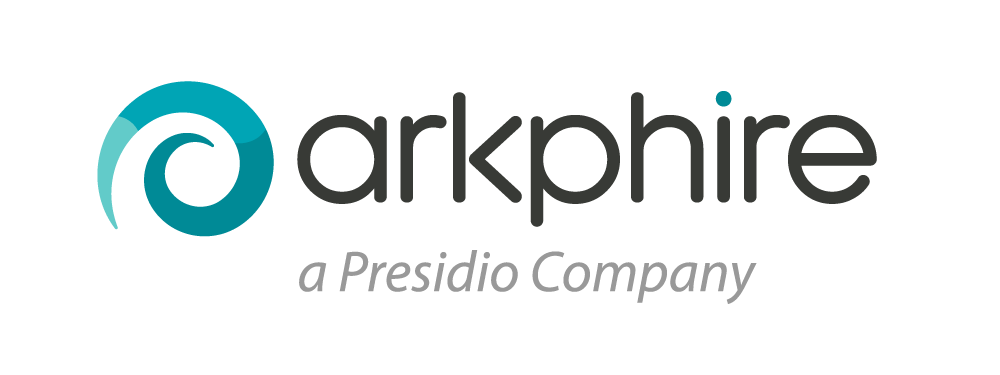The March 24th 2013 “Sunday Business Post” (Boland, 2013) article “Transparency is key to Arkphire’s success” in the Commercial Report section around Managed Services raised several key issues in regards to a potential impact on the Management Consultancy business in Ireland. The article brings up an interesting subject around trust and transparency within the IT managed service industry. Bearing in mind that it is the Management Consultant’s responsibility to provide general management advice within strategic, organizational, or operational context (Canback, 1998) it is essential to understand what the impact of the described business model can have on other similar organisations in Ireland or even internationally.
Arkphire Model
The company in question, Arkphire, describes itself as a market leader in providing infrastructure management solutions. Looking at the company’s Corporate Social Responsibility (CSR) value statement, Arkphire believes “in doing business in an ethical manner, and in creating long term business relationships built on trust, confidence and partnership”. As a direct consequence of this value statement, the company has taken a business model that is based on full disclosure and extreme transparency towards its clients. Furthermore, the company engages itself to reduce to overall cost to their customer if Arkphire is able to reduce their own costs, and will pass these savings on to the client, while still taking the same margin as initially quoted on to protect the P&L from possible erosion. This engagement model seems to be giving Arkphire a distinct competitive advantage in its local market and in the article several very substantial customer wins are mentioned to emphasise the value the business model can bring, such as for example Friends First and Boylesport (Boland, 2013). The company’s model and the large customer wins tie in with Glückler’s view who states that “the main drivers of competitiveness are neither price nor measurable quality, but rather experience-based trust and a mechanism we label “networked reputation” (Glückler, 2003). This concept of networked reputation is key in regards to management consultants. Even if clients hire a specific firm, it is often linked to a previous experience with an individual consultant and the positive experience or value-add that person has created for the client.
What can Management Consulting Firms learn from this?
What makes this transparent pricing model so relevant for management consultancy firms is that it addresses several of the more common objections that are raised towards the sector as a whole. The objections in question are referring mainly to the perception that management consultant firms have a tendency to (1) lack originality, (2) waste money for their clients while being overpaid themselves, in combination with a (3) lack of openness and accountability, as well as coming across as “arrogant or insensitive”. These critiques are further illustrated below (Sturdy, 2009). Adopting an approach similar to that of Arkphire as a management consulting firm should allow the first firm to move towards the described model to gain immediate competitive advantage against its peers. Being able to change these perceptions of the management consulting sector would be a huge benefit to the sector as a whole, and to the company who would adopt the “Arkphire model” first. This is further enforced by a study done around transparency and accountability in EU and local government. The outcome of study states that there is a clear desire from the citizen to engage in a dialogue with the government bodies, however, the ICT structure isn’t always available to facilitate this “conversation” (Pina, Torres, & Royo, 2007). Extrapolating from this research, we can conclude that companies engaging in business with management consultancy firms will want to have an open dialogue as well. Arkphire are enabling this by showing the cost model “within full view of the client” (Boland, 2013) and ensuring there are no hidden agendas and costs. Further research has shown that the key to making the consultancy process work was trust (Forbes, 2004), and in particular trust around the tendering process. This once again reflects on the transparency of the pricing model and the possible implications of long term engagement with the chosen consultancy firm. If there is a possibility of creating real value add and reinforce this with a solid trusting relation there is a higher probability of winning repeat business with the customer. Looking at the second objection described earlier (wasting money), being able to trust an organisation like Arkphire to adapt their pricing structure in favour of their client is an essential first step towards engendering the open and trusting working relationship that will benefit both parties as aforementioned.
Why is trust so important?
The reason this relation of trust is so important was illustrated in great detail in the early 90’s by Edgar Schein. He identified three models of consultation: purchase of expertise, doctor-patient, and process consultation. These models have since then become broadly accepted. The model that has the most relevance and potential impact in this case is the “doctor-patient” model. This model has the consultant focusing on using a “diagnostic approach” to examine the client organization’s problems. Management consultants are expected to identify strategic and organizational problems based on experience, knowledge and diagnostic capabilities. Following on this doctor-patient model, a conclusion was drawn; “This model emphasizes the importance of building a strong relationships and developing trust between the client and the consultant” (Appelbaum & Steed, 2003). The main reason why trust is so important is to do with the type of culture within a given organisation. How this culture is learned can be described as (1) anxiety and pain reduction: the social trauma model, and (2) positive reward and reinforcement; the success model. (Schein, 1983, p. 7). Considering the third critique [(3) lack of openness and accountability, as well as coming across as “arrogant or insensitive” (Sturdy, 2009)] it is highly probable that many organisations have worked with management consultancy firms that have driven a culture of anxiety and pain across the client’s firm. Embracing the Arkphire model should allow for the positive reward and reinforcement (Schein, 1983) culture to emerge and enable a success model to thrive, both on the management consultant’s side as on the client’s side.
How to change the model?
It would appear that IT Managed Services firm Arkphire has changed the existing business model it and its peers are operating under. By offering:
- full disclosure on the projects the company is tendering for, and
- sharing the expertise on offer from individual consultants, as well as
- giving a clear pricing model for the resources available,
The level of trust and openness between the client and the sales staff in the company has increased in comparison to its competitors. As a consequence, management consultancy firms must embrace this model of openness and clarity, to allow a win-win situation to emerge from more negotiations over time. Considering that there is a possibility to not only leverage real expertise to deliver projects faster and better that before, it should enthrall staff to outperform each other and themselves. This will enable more potential clients to find the right reasons to look to consultants for help. The benefits of employing a management consultancy firm will exceed the costs faster than before, bringing a more rapid return on investments. Further, the learning that can be gained from working with the management consulting firm that implements this business model will not only address the more common management topics such as diagnosis, interviewing, persuasion, communication, evaluation, feedback and similar skills, but will be able to add an additional layer of value and positive reward around the best way to improve productivity and reduce costs for the client. If this becomes a transferable skill, the firm who leverages this best will be able to offer its clients a new exceptional competitive advantage as well. In conclusion, developing the internal skills that allow a company change its business model as dramatically as Arkphire has been able to do, will clearly create “a management consultant (..who…) enhances management’s own competence and knowledge” (Chitakornkijsil) and as such will develop long term, trusting and financially rewarding working relationships.
- Charlie Weijer










